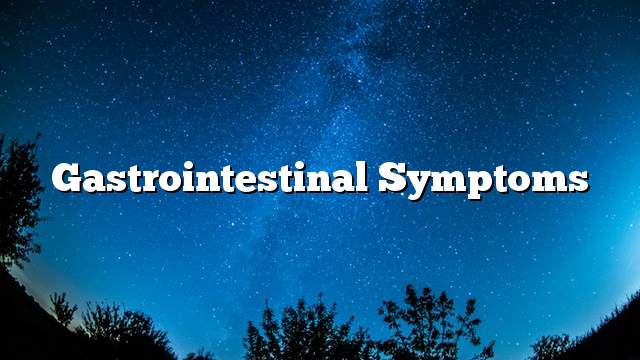Gastrointestinal colon
One of the diseases of the digestive system, also called the term Irritable colon, which is the most correct name, as it is called gastrointestinal colon is a generic name because of its association with the food type, the first cause is eating foods heavily tolerant, especially Harraga, And the function of the colon is the absorption of water and salts from digested food, and then the muscles of the walls to pay the last remnants of food until the anus and get rid of the body, and in the case of irritable bowel disorder occurs in the work of the colon does not Function as it should, and therefore it is not a membership problem, but functional, and most cases of infection are women.
Gastrointestinal symptoms
Although the prevalence of Irritable Bowel Syndrome (IBS) is widespread, its symptoms are mostly unclear, and in the past it has been classified as a condition associated with stress and anxiety, but with increasing incidence it has been listed under psychosomatic diseases, ie, as a result of psychological and physical symptoms.
- General symptoms:
- Bloating and gases.
- stomach ache.
- Constipation If the movements of the colon muscles are less than supposed, or if diarrhea is more active than supposed, the patient gets both cases at different times.
- Stress and depression.
- Intestinal disturbance so that the patient can hear the sound of dizziness.
- Pain in the lower abdomen of the left most often.
- Fear of things that did not cause anxiety to the patient in the past such as boarding a plane.
- Symptoms appear with the development of the disease:
- Anemia.
- Shortness of breath.
- Feeling Pengz in the heart.
- Accelerating heartbeat.
- Nausea especially in the morning.
- Dyspepsia.
- Acidity of the stomach.
- Pain in the back and shoulders.
- Hemorrhoids
- Symptoms observed in some patients:
- General weakness and lethargy.
- Dizziness.
- Weight loss.
- Sister.
The symptoms vary from one person to another, and the severity of the symptoms varies from one time to another, disappears or eases, and returns sharply at other times.
Factors affecting the digestive colon
- Type of food: The symptoms of increased severity of several types of foods that affect differently are:
- Chocolate, milk, can increase diarrhea or constipation.
- Soft drinks, cabbage, cauliflower increase swelling.
- Stress: When you change your daily routine by suddenly increasing your movement, you can increase your digestive symptoms.
- Hormones: Hormonal imbalances have a role in increasing symptoms, and this is often seen in women because of the change of hormones, especially during the period of menstruation.
